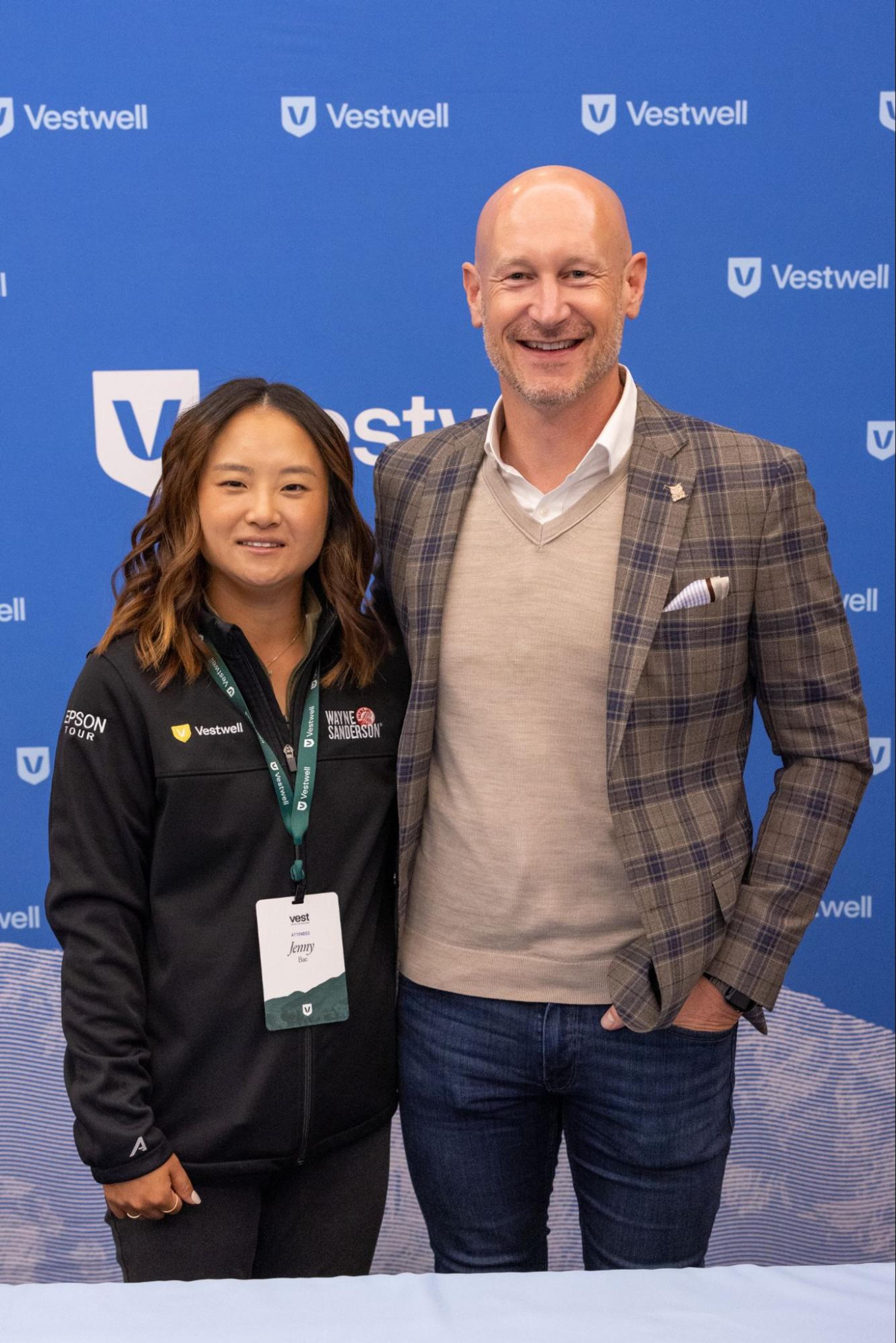Leveling the Playing Field: Closing the Gender Savings Gap With LPGA’s Jenny Bae

For decades, women have been breaking barriers in business, education, and leadership. Yet when it comes to financial security, many still face hurdles to building meaningful savings.
Across industries, women earn less on average, take more career breaks to care for family, and are less likely to have access to retirement benefits. The result is a long-term shortfall that leaves millions of women saving less for their future, even as they live longer than men.
Nowhere is this imbalance more visible than in professional sports. While the headlines celebrate trophies and world-class performances, many female athletes face the same financial realities as women everywhere: shorter careers, unpredictable income, and fewer safety nets.
At Vestwell, we believe every worker, no matter their gender, background, or occupation, deserves access to modern savings tools. That’s why we’re proud to partner with LPGA rookie Jenny Bae to champion financial access—showcasing what the opportunity can look like when savings solutions are built for everyone.
As we kick off our sponsorship with Jenny, we're asking the question: how can we make savings accessible to give everyone the room to own their future? Because when individuals have the tools to plan, save, and invest in their future, everyone can Vestwell for the Future.
Beyond The Wage Divide: The Savings Gap for Women
In 2024, on average, women earned about 82 cents for every dollar earned by men. That difference compounds over time—when earning less, the ripple effects hit long after the paycheck. It can mean:
- Fewer dollars going into retirement accounts, since contributions are usually a percentage of income
- Smaller employer matching outcomes, since they are often tied to how much an employee contributes
- Lower Social Security benefits, since they’re based on lifetime earnings
But the issue isn’t just about pay. On a per-dollar-of-income basis, women hold 74% more student loan debt and 14% more credit card debt than men. Those debts accrue interest, crowd budgets, and make it harder to redirect money toward saving.
And even when budgeting carefully, working hard, and planning ahead, the system doesn’t always work for women. On average, women are more likely to step away from work to care for children or aging parents or take part-time roles. These paths often lack access to workplace savings benefits.
By the time they near retirement, half of women ages 55 to 66 report having no personal retirement savings at all. Even for those who do save, the numbers lag far behind: women retire with about 30% less in savings than men, despite living longer on average.
The gender savings gap reveals something fundamental: financial systems have been built for linear, uninterrupted careers. But some financial journeys don’t follow a straight line. There is a clear need for a framework built to match the realities of real life with flexible tools, adaptive strategies, and better access.

Where Sports Make It Visible
Female athletes often face the most acute version of the gender savings gap: shorter careers, less predictable income, and limited benefits. 78% of professional female athletes earn $50,000 or less per year, and more than half spend as much, or more, than they make just to stay competitive.
By partnering with LPGA rookie Jenny Bae, we aim to highlight how access to intuitive savings tools can change what’s possible for savers everywhere.
Coming from a hardworking farming family in Georgia, Jenny knows firsthand how unpredictable income and limited resources can make saving feel out of reach. “Watching my parents work very hard for their money, but not always knowing where to invest it, taught me that I need to start early,” Jenny said. “Our paychecks are very unsteady, but planning ahead gives you one less thing to worry about.”
Now, Jenny’s parents’ farm uses Vestwell to build the stability they once thought was out of reach—a full-circle moment that brings Jenny’s story even closer to home.
“I think the one thing I’m looking forward to in partnering with Vestwell is how they help families like mine. Being able to invest, plan, and live a better life in the future is something everyone should have, no matter who you are or what you do. ”
In professional golf, prize purses and sponsorships are often heavily tilted toward men. And while many athletes play internationally or take on endorsements to make ends meet, some still lack access to the kind of workplace benefits that traditional employers provide.
As Jenny puts it, “I think women in the athletic industry—or just women in general—have a little less guidance.” When we understand how the gap shows up for women at every level—from athletes to entrepreneurs—we can build tools that close it.
To Vestwell is to Level the Playing Field
Through Jenny’s voice, we’re helping reframe how people think about saving. Because when everyone has access to the right tools, it doesn’t just close the gap, it opens doors. They redefine what financial security looks like for themselves, their families, and the generations that follow.
That’s what it means to Vestwell for the Future—to build systems of savings that are flexible, inclusive, and built for everyone who works hard to make their future bright.
